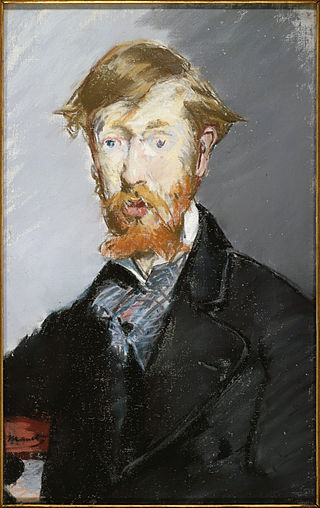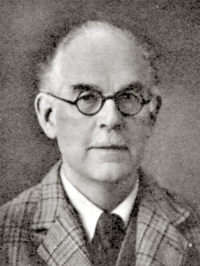Related Research Articles

Theodore Herman Albert Dreiser was an American novelist and journalist of the naturalist school. His novels often featured main characters who succeeded at their objectives despite a lack of a firm moral code, and literary situations that more closely resemble studies of nature than tales of choice and agency. Dreiser's best known novels include Sister Carrie (1900) and An American Tragedy (1925).

Sir Rupert Charles Hart-Davis was an English publisher and editor. He founded the publishing company Rupert Hart-Davis Ltd. As a biographer, he is remembered for his Hugh Walpole (1952), as an editor, for his Collected Letters of Oscar Wilde (1962), and, as both editor and part-author, for the Lyttelton/Hart-Davis Letters.

George Augustus Moore was an Irish novelist, short-story writer, poet, art critic, memoirist and dramatist. Moore came from a Roman Catholic landed family who lived at Moore Hall in Carra, County Mayo. He originally wanted to be a painter, and studied art in Paris during the 1870s. There, he befriended many of the leading French artists and writers of the day.

Old Men Forget is a 1953 autobiography by Duff Cooper, Viscount Norwich, detailing his Victorian childhood, Edwardian youth, and work in literature and politics.

Jonathan Cape is a London publishing firm founded in 1921 by Herbert Jonathan Cape (1879–1960), who was head of the firm until his death.

Andrew Sydenham Farrar Gow was an English classical scholar and teacher. Apart from eleven years as a master at Eton College between 1914 and 1925 his career was entirely at Trinity College, Cambridge.
The Dial was an American magazine published intermittently from 1840 to 1929. In its first form, from 1840 to 1844, it served as the chief publication of the Transcendentalists. From the 1880s to 1919 it was revived as a political review and literary criticism magazine. From 1920 to 1929 it was an influential outlet for modernist literature in English. In January 2023, The Dial was revived once again as a magazine of international writing and reporting.

John Gross FRSL was an English man of letters. A leading intellectual, writer, anthologist, and critic, The Guardian and The Spectator were among several publications to describe Gross as "the best-read man in Britain". The Guardian's obituarist Ion Trewin wrote: "Mr Gross is one good argument for the survival of the species", a comment Gross would have disliked since he was known for his modesty. Charles Moore wrote in The Spectator: "I am left with the irritated sense that he was under-appreciated. He was too clever, too witty, too modest for our age."

The Lyttelton/Hart-Davis Letters are a correspondence between two literary Englishmen, George Lyttelton (1883–1962) and Rupert Hart-Davis (1907–99), written between 1955 and Lyttelton's death, and published by Hart-Davis in six volumes between 1978 and 1984.

Ivor John Carnegie Brown CBE was a British journalist and man of letters.

George Malcolm Young was an English historian, best known for his book on Victorian times in Britain, Portrait of an Age (1936).

Lucy Caroline Cavendish, also known as Lady Frederick Cavendish, was a pioneer of women's education.

The Hon George William Lyttelton was a British teacher and littérateur from the Lyttelton family. Known in his lifetime as an inspiring teacher of classics and English literature at Eton, and an avid sportsman and sports writer, he became known to a wider audience with the posthumous publication of his letters, which became a literary success in the 1970s and 80s, and eventually ran to six volumes.

Sir Walter Newman Flower was an English publisher and author. He transformed the fortunes of the publishing house Cassell & Co, and later became its proprietor. As an author, he published studies of the composers George Frideric Handel, Franz Schubert and Arthur Sullivan. He also edited the million-word journals of Arnold Bennett for publication.
Sir Roger Thomas Baldwin Fulford was an English journalist, historian, writer and politician.
An Eton Poetry Book is an anthology edited by Cyril Alington and George Lyttelton, with an introduction by A. C. Benson. The editors' intentions were "to provide poems which boys might reasonably be expected to like" and "to awaken their metrical sense." The book was published in 1925, with a second impression in 1927 and a third in 1938.
Allan Wade was a British actor, theatre director and writer.

Maud Alice Burke, later Lady Cunard, known as Emerald, was an American-born, London-based society hostess. She had long relationships with the novelist George Moore and the conductor Thomas Beecham, and was the muse of the former and a champion of and fund-raiser for the latter. She was a supporter of Wallis Simpson during the British abdication crisis of 1936, vainly hoping for a court appointment. The Second World War ended her era of private patronage and lavish hospitality.

Mona Wilson was a British public servant and author. After voluntary social work, seeking to improve the conditions of working women in deprived industrial areas, she joined the civil service in 1911, and became one of the first women in Britain to earn equal pay with her male colleagues. She left the civil service in 1919 and pursued a literary career.

Sir Lawrence Evelyn Jones, 5th Baronet, MC, TD, FRSL, was an English writer, known for his light verse, humorous prose, a trilogy of reminiscences and three collections of short stories.
References
- Lyttelton/Hart Davis Letters, Vol. 1 (1955–6 letters), published 1978, ISBN 0-7195-3478-X
- Lyttelton/Hart Davis Letters, Vol. 2 (1956–7 letters), published 1979, ISBN 0-7195-3673-1
- Lyttelton/Hart Davis Letters, Vol. 3 (1958 letters), published 1981, ISBN 978-0-7195-3770-7
- Lyttelton/Hart Davis Letters, Vol. 4 (1959 letters), published 1982, ISBN 978-0-7195-3941-1
- Lyttelton/Hart Davis Letters, Vol. 5 (1960 letters), published 1983, ISBN 978-0-7195-3999-2
- Lyttelton/Hart Davis Letters, Vol. 6 (1961–2 letters), published 1984, ISBN 978-0-7195-4108-7